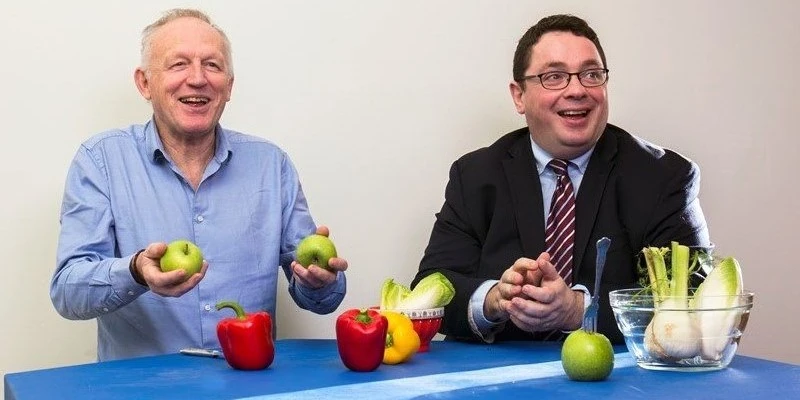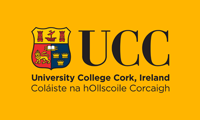News
Let Food Be Thy Medicine

Let Food Be Thy Medicine
APC Scientists Explain How Food Affects Our Mood
Ted Dinan, Professor of Psychiatry at UCC and Professor John Cryan, Chair of the Department of Anatomy and Neuroscience at UCC; authors of The Psychobiotic Revolution and Principal Investigators in APC Microbiome Ireland . Picture: Clare Keogh
A new book, ‘The Psychobiotic Revolution’, has been published by APC scientists Professor John Cryan, Chair of the Department of Anatomy and Neuroscience at University College Cork (UCC) and Professor Ted Dinan, Professor of Psychiatry at the University, together, and with the help of, acclaimed US science writer Scott C. Anderson.
‘The Psychobiotic Revolution’ was released in the USA and online through Amazon.com before Christmas, where it sold out quickly and had to be reprinted by publishers The National Geographic.
“We have discovered that the gut microbiota influences our emotions. We have shown that people who are clinically depressed have less diversity in the bacteria in their gut than people who are not depressed. The question now is how can we improve the diversity of our bacteria,” explains Professor Dinan. “For so long it’s generally been perceived that anti-depressants and cognitive behavioural therapy are the mainstay of treating depression but our work clearly shows that your microbiota is very important and that for a more holistic management of depressive illness we should be focussing on diet and exercise as well.”
“It proves the theory that a healthy gut is connected to a healthy mind,” says Professor Cryan. He added: “We’re talking about a paradigm shift in relation to how we conceptualise how our brains work. In medicine, traditionally, we tended to compartmentalise systems in the body so if you’re interested in what happens in neuroscience or psychiatry you’re interested in what happens from the neck up. However, what we are talking about in this book is so very different as we show how bacteria in the gut can influence brain function.”
Explaining how to increase the diversity of your diet, this book is accessible to those unfamiliar with biomedicine.
Indeed, The Lancet wrote: “Although decidedly aimed at the lay reader, the tone throughout is very humorous; I found myself swiftly turning pages, excitedly anticipating the next witty joke. Overall, this is a great book that encourages you to ‘take charge of your gut to optimise your mind and your mood’. This is a book that you would reluctantly lend to friends, in the fear that they might not return it”
And The Guardian said: “The hope is that it may one day be possible to diagnose some brain diseases and mental health problems by analysing gut bacteria, and to treat them – or at least augment the effects of drug treatments – with specific bacteria. Cryan and his colleague Ted Dinan call these mood-altering germs “psychobiotics’.”
The Psychobiotic Revolution: Mood, Food, and the New Science of the Gut-Brain Connection – by Scott C. Anderson (Author), John F. Cryan (Author), Ted Dinan (Author) is published by National Geographic books and is available from all good bookstores.


